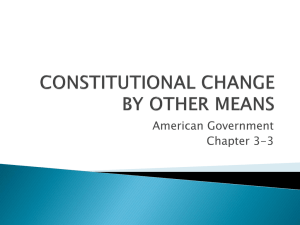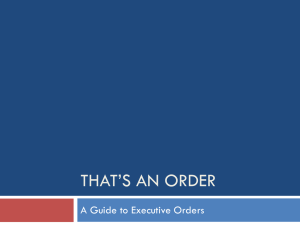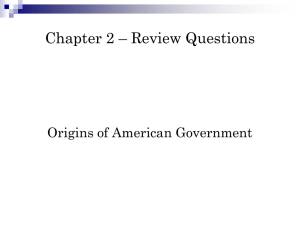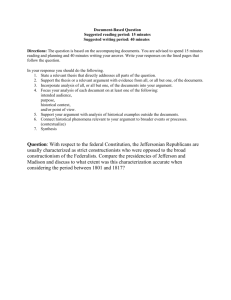Can a president be too strong? "Of course not,"
advertisement
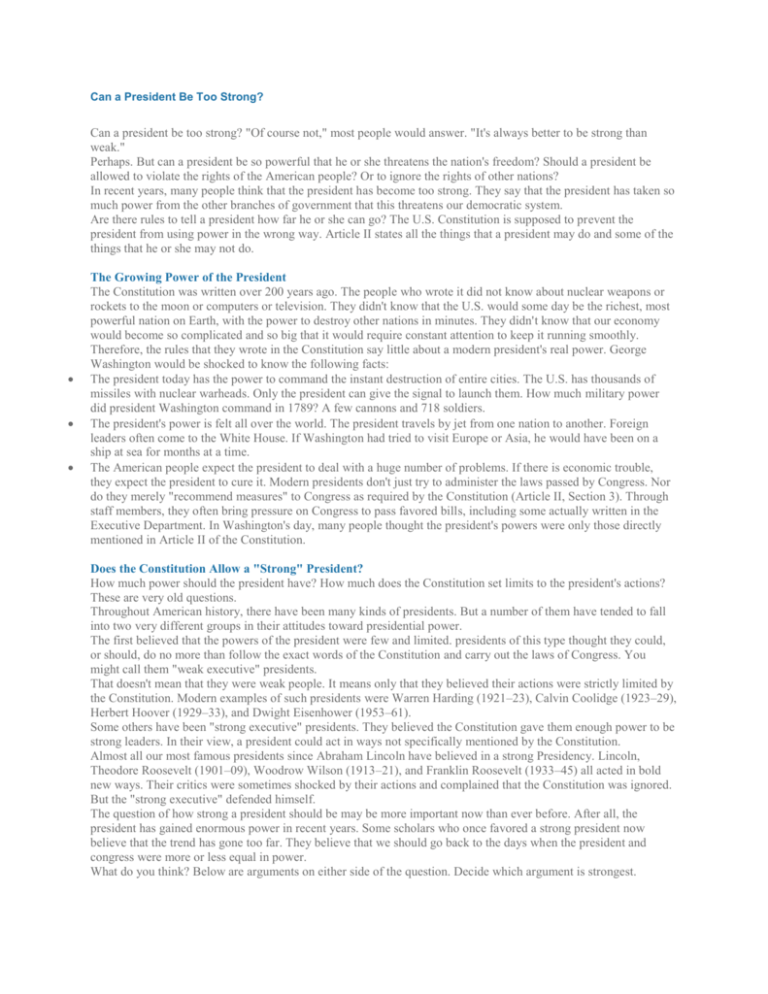
Can a President Be Too Strong? Can a president be too strong? "Of course not," most people would answer. "It's always better to be strong than weak." Perhaps. But can a president be so powerful that he or she threatens the nation's freedom? Should a president be allowed to violate the rights of the American people? Or to ignore the rights of other nations? In recent years, many people think that the president has become too strong. They say that the president has taken so much power from the other branches of government that this threatens our democratic system. Are there rules to tell a president how far he or she can go? The U.S. Constitution is supposed to prevent the president from using power in the wrong way. Article II states all the things that a president may do and some of the things that he or she may not do. The Growing Power of the President The Constitution was written over 200 years ago. The people who wrote it did not know about nuclear weapons or rockets to the moon or computers or television. They didn't know that the U.S. would some day be the richest, most powerful nation on Earth, with the power to destroy other nations in minutes. They didn't know that our economy would become so complicated and so big that it would require constant attention to keep it running smoothly. Therefore, the rules that they wrote in the Constitution say little about a modern president's real power. George Washington would be shocked to know the following facts: The president today has the power to command the instant destruction of entire cities. The U.S. has thousands of missiles with nuclear warheads. Only the president can give the signal to launch them. How much military power did president Washington command in 1789? A few cannons and 718 soldiers. The president's power is felt all over the world. The president travels by jet from one nation to another. Foreign leaders often come to the White House. If Washington had tried to visit Europe or Asia, he would have been on a ship at sea for months at a time. The American people expect the president to deal with a huge number of problems. If there is economic trouble, they expect the president to cure it. Modern presidents don't just try to administer the laws passed by Congress. Nor do they merely "recommend measures" to Congress as required by the Constitution (Article II, Section 3). Through staff members, they often bring pressure on Congress to pass favored bills, including some actually written in the Executive Department. In Washington's day, many people thought the president's powers were only those directly mentioned in Article II of the Constitution. Does the Constitution Allow a "Strong" President? How much power should the president have? How much does the Constitution set limits to the president's actions? These are very old questions. Throughout American history, there have been many kinds of presidents. But a number of them have tended to fall into two very different groups in their attitudes toward presidential power. The first believed that the powers of the president were few and limited. presidents of this type thought they could, or should, do no more than follow the exact words of the Constitution and carry out the laws of Congress. You might call them "weak executive" presidents. That doesn't mean that they were weak people. It means only that they believed their actions were strictly limited by the Constitution. Modern examples of such presidents were Warren Harding (1921–23), Calvin Coolidge (1923–29), Herbert Hoover (1929–33), and Dwight Eisenhower (1953–61). Some others have been "strong executive" presidents. They believed the Constitution gave them enough power to be strong leaders. In their view, a president could act in ways not specifically mentioned by the Constitution. Almost all our most famous presidents since Abraham Lincoln have believed in a strong Presidency. Lincoln, Theodore Roosevelt (1901–09), Woodrow Wilson (1913–21), and Franklin Roosevelt (1933–45) all acted in bold new ways. Their critics were sometimes shocked by their actions and complained that the Constitution was ignored. But the "strong executive" defended himself. The question of how strong a president should be may be more important now than ever before. After all, the president has gained enormous power in recent years. Some scholars who once favored a strong president now believe that the trend has gone too far. They believe that we should go back to the days when the president and congress were more or less equal in power. What do you think? Below are arguments on either side of the question. Decide which argument is strongest. The Case Against a Strong President We often treat our presidents as if they were royalty. presidents live in a big mansion. They have servants and assistants whose only job is to make sure the president has everything he or she wants. They don't get much personal contact with the American people because the Secret Service fears they may be attacked. As one critic says: "No one speaks to him unless spoken to first. No one ever tells him to go soak his head when his demands become unreasonable." The president has taken more and more power at the expense of Congress. The people who wrote the Constitution believed in checking and balancing power between Congress and the president. But today, the president is more powerful than Congress. One example of what has happened is in the power to declare war. The Constitution clearly gives that power to Congress only. Yet recent presidents have been able to fight wars without a formal declaration of war by Congress. Take, for example, Vietnam. Though the president never asked Congress for a declaration of war against anyone in Southeast Asia, Congress allowed the president to conduct a war there. Congress passed a resolution allowing the president "to take all necessary measures to ... prevent aggression [in Vietnam]." Then, over the course of the years, it consistently gave the president the money that he said he needed to do so. It may be said that by doing this Congress willingly gave up its exclusive power to declare war. So run the arguments of those who are against the idea of a strong president. The Case for a Strong President The growth of the president's power is necessary. presidents should be strong and powerful. The U.S. today needs a strong president. Who else can give the nation leadership? Who else can make the quick decisions that are needed in a national emergency? In the old days, an army could move only as fast as its horses and sailing ships. There was plenty of time for Congress to debate issues of war and peace. But not today. Only the president can act fast enough in an emergency. Furthermore, only the president can give real leadership on the many national problems. Congress cannot lead as well as the president simply because there is only one president, but there are 435 Representatives and 100 Senators. Members of Congress seldom agree on what to do. Unlike members of Congress, the president is elected by all the voters. The president does not represent just one part but the whole of the country. And if the people think that the president has taken too much power, they can always elect someone else every four years. So run the arguments of those who believe in the need for a strong president. Adapted from The Presidency, Congress, and the Supreme Court, Scholastic Inc., 1989.

